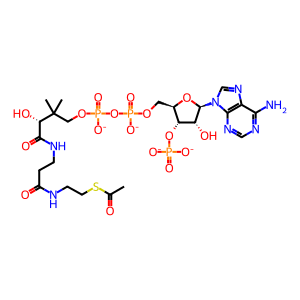Reaction: Defective SLC33A1 does not transport Ac-CoA from cytosol to Golgi lumen
- in pathway: Defective SLC33A1 causes spastic paraplegia 42 (SPG42)
The human gene SLC33A1 encodes acetyl-CoA transporter AT1. SLC33A1 transports cytosolic acetyl-CoA (Ac-CoA) to the Golgi apparatus lumen, where it serves as the substrate for acetyltransferases that O-acetylates sialyl residues of gangliosides and glycoproteins. Defects in SLC33A1 are the cause of spastic paraplegia autosomal dominant type 42 (SPG42; MIM:612539), a neurodegenerative disorder characterised by a variable speed of (but progressive) weakness and spasticity of the lower limbs. A mutation causing SPG42 is S113R, rendering it non-functional (Lin et al. 2008). Defects in SLC33A1 can also cause congenital cataracts, hearing loss, and neurodegeneration (CCHLND; MIM:614482), an autosomal recessive disorder characterised by congenital cataracts, severe psychomotor retardation, and hearing loss, together with decreased serum ceruloplasmin and copper. Mutations in SLC33A1 that can cause CCHLND include A110P and Y366* (Huppke et al. 2012).
Reaction - small molecule participants:
Ac-CoA [cytosol]
Reactome.org reaction link: R-HSA-5649742
======
Reaction input - small molecules:
acetyl-CoA(4-)
Reaction output - small molecules:
Reactome.org link: R-HSA-5649742

